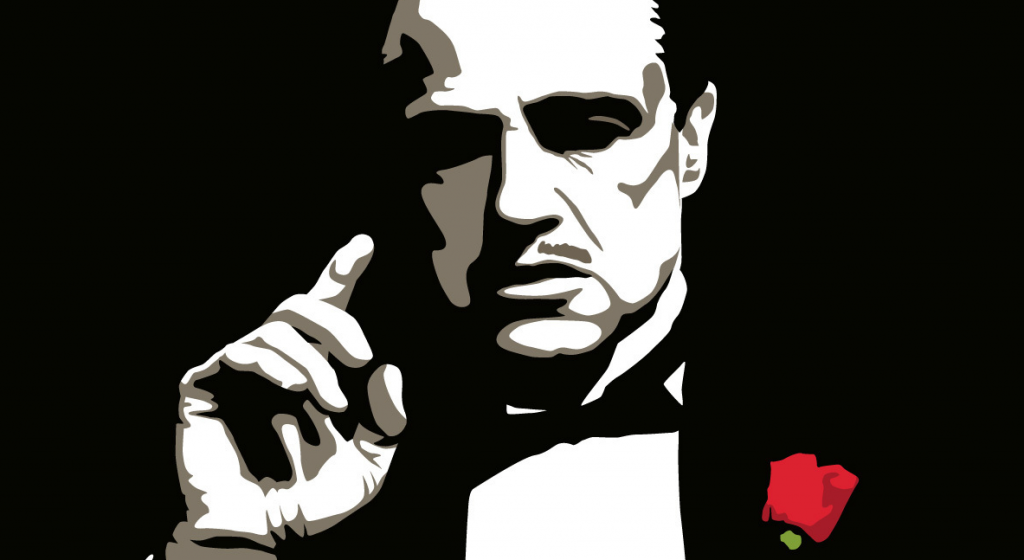How do you develop loyalty when it doesn’t exist? How do you transform an organization’s or team’s culture? What things are loyalty killers?
These questions are ongoing challenges for all of us who seek to move ourselves, our teams – and others – from good to great.

The Godfather, Michael Corleone, built his empire on one underlying philosophy: loyalty is the highest of virtues.
It didn’t matter if the Corleone’s lied, cheated, stole, or murdered. The only thing that mattered was loyalty to la famiglia.
Like in the movie, many in sports believe that a ‘loyalty above all else’ approach is a virtue.
But, is it? Above all else?
Loyalty, Schmoyalty
Bob Starkey, a maven and active sharer of solid basketball insights, excerpted Dick DeVenzio‘s thoughts on loyalty…
Loyalty is a word often associated with sports. Some coaches emphasize its importance. Personally, I am skeptical about it. If you find yourself demanding or asking for loyalty, you may not be doing the things necessary to inspire it.
Make sure you remain loyal to yourself and to the principles you believe in. Loyalty is not always admirable; loyalty to friends, to teams and to nations is unwarranted when it conflicts with doing what’s right.
You have to decide for yourself what’s right.
[ Read the whole post from Coach Starkey. ]
I’m skeptical of “loyalty” too.
What does it mean to be “loyal”..? (I’m not quite sure. And, I’m also not quite sure your definition matches my definition. Is it possible that we’re using the same word that means two different things?)
Are we talking Jerry Sanduski and the Penn State sex scandal type loyalty? There were so many complicit in what had taken place at Penn State; many of whom where just being “loyal” to the school, football program, or Joe Paterno.
Naw… that’s not what you’re talking about.
That’s my point… The challenge is when the word loyalty is lobbed out, without context and clarity, it has led to countless examples of scandal, negligence, cheating, collusion and nepotism. Its led to coaches who have covered up abuses and “loyal” teammates who have kept quiet, often with disastrous consequences.
So What Do You Mean When You Say Loyalty, Coach?
Are you talking about taking responsibility (for upholding the team’s values) rather than blind obedience? If so, great. Say that. Say you value people who are willing to be held accountable to the team’s values and will hold the head coach and players up to those standards.
Are you talking about being trustworthy in their communication with players (outside your presence); and parents, administrators, etc.? Great. Then, say you value people who say what they mean and do what they say.
Simply put: you’re looking for a person with integrity (rather than “loyalty”) .
The thing is, I believe that most of us aren’t looking for Godfather/Sandusky-esque type loyalty.
If that assumption is true, then one can now say they’re looking to attract, retain, develop, recognize and reward people whose values align (i.e. integrity), are ‘of the team’ (i.e. willing to put the team’s best interest first); and, are tactful (i.e. understand timing, tone, and target when speaking with others—both within and outside of the team).
Is Loyalty Gained, Given or Groomed?
In my experience, having been fortunate to have been a part of some very good (and well led) organizations, loyalty is not something that requires discussion. In fact, it’s not something spoken or asked for as a requisite skill.
Effective leaders inspire loyalty. They have a fanatic discipline focused on creating an environment that identifies, develops, recognizes and rewards people whose personal character matches the team’s character (or coporation’s vision and values).
Loyalty is a byproduct of a deeper process of defining your team’s culture or collective commitments ; as well as mission/vision. This will attract and retain good people—especially if they feel valued and are recognized.
The result? Loyalty.
Said differently: Define your organization’s or team’s core values. Live it authentically. Protect it. Identify and secure others whose values align. When their sense of “what’s right,” as DeVenzio says, aligns with yours, a synergy occurs. A movement is created. Attraction and retention follows.
And, like tending to a garden, creating an environment where “loyalty” is groomed not asked for is a never-ending daily process that requires a lot of LEADERSHIPENERGY. (That’s right. One word because the two go hand-in-hand.)
Show me a coach who says what they mean and means what they say. And, I’ll show you a coach with whom you won’t need to mention loyalty. Well, unless of course their sayings and doings don’t match up with your values. In that case, you don’t even want that dog sniffing around your yard.
One last: If an AC is pushing another agenda w/ players, his/her character is flawed. Don't want that type of person "loyal" to ur program.
— theLLaBB (@theLLaBB) July 12, 2017
Character is what counts—most. Inspire “loyalty”. No need to talk about it .
—sef.
Ok… talk to me: Why is it that #loyalty always seems to rank so high as coaching qualification? Is this true outside N.America? https://t.co/rHY4GErSpf
— theLLaBB (@theLLaBB) July 12, 2017